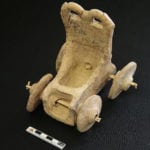 History
History  History
History  Health
Health 10 Everyday Activities That Secretly Alter Consciousness
 History
History Top 10 Historical Disasters Caused by Someone Calling in Sick
 Animals
Animals 10 New Shark Secrets That Recently Dropped
 Movies and TV
Movies and TV 10 Forgotten Realities of Early Live Television Broadcasts
 Technology
Technology 10 Stopgap Technologies That Became Industry Standards
 Weird Stuff
Weird Stuff 10 Wild Facts About Taxidermy That You Probably Didn’t Know
 Travel
Travel 10 Beautiful Travel Destinations (That Will Kill You)
 Miscellaneous
Miscellaneous 10 Modern Marriage Rituals Born from Corporate Branding
 Weird Stuff
Weird Stuff Ten Bizarre Visions of 2026 from Fiction
 History
History 10 “Modern” Problems with Surprising Historical Analogs
 Health
Health 10 Everyday Activities That Secretly Alter Consciousness
 History
History Top 10 Historical Disasters Caused by Someone Calling in Sick
Who's Behind Listverse?

Jamie Frater
Head Editor
Jamie founded Listverse due to an insatiable desire to share fascinating, obscure, and bizarre facts. He has been a guest speaker on numerous national radio and television stations and is a five time published author.
More About Us Animals
Animals 10 New Shark Secrets That Recently Dropped
 Movies and TV
Movies and TV 10 Forgotten Realities of Early Live Television Broadcasts
 Technology
Technology 10 Stopgap Technologies That Became Industry Standards
 Weird Stuff
Weird Stuff 10 Wild Facts About Taxidermy That You Probably Didn’t Know
 Travel
Travel 10 Beautiful Travel Destinations (That Will Kill You)
 Miscellaneous
Miscellaneous 10 Modern Marriage Rituals Born from Corporate Branding
 Weird Stuff
Weird Stuff Ten Bizarre Visions of 2026 from Fiction
10 Most Amazing North Korean Defectors
With North Korea currently doing the nuclear equivalent of ringing America’s doorbell and then running away, a lot of the world has come to see the country in a certain light. Given the atomic hijinks, grinding poverty, and ruthless dictatorship, no one is particularly surprised to hear that thousands of North Korean citizens have fled their destitute homeland—often with nothing but the clothes on their back and some truly amazing stories to tell.
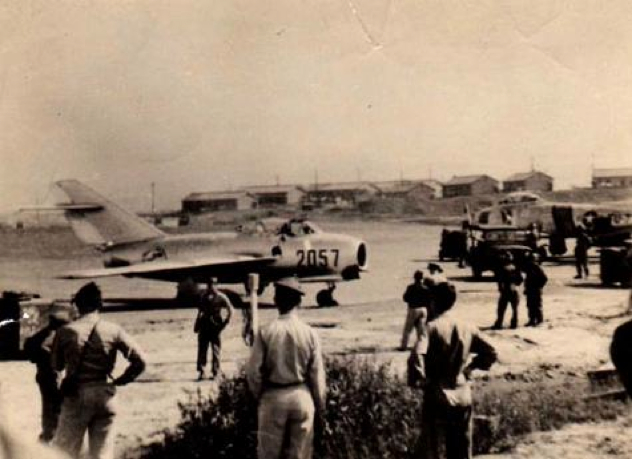
One of the earlier defectors was a pilot by the name of No Kum-Sok. On September 21, 1953, the twenty-one-year-old pilot suddenly upped and flew his cutting edge MiG-15 fighter plane to Kimpo airbase in South Korea. It was only after he had successfully escaped North Korea that he was given two pieces of very good news. Firstly, he was told that his mother had managed to flee to South Korea back in 1951. Secondly, he learned of the $100,000 reward (about $820,000 in today’s money) being offered by the United States for the delivery of a working MiG-15.
With a newly inflated bank account, he emigrated to the US and changed his name to Kenneth Rowe. After settling in he graduated from the University of Delaware and became an aeronautical engineer, working for some of the biggest names in the field. He retired in 2000, after having spent seventeen years working as an aeronautical engineering professor. Meanwhile, his famous plane is currently on display at the National Museum of the United States Air Force. It’s probably safe to say that he doesn’t regret leaving North Korea.
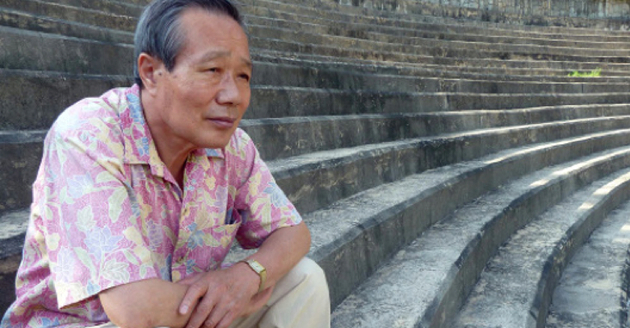
But not everyone had such a nice surprise waiting for them on the other side of the border. In 1968, Lieutenant Kim Shin-Jo, along with thirty other hand-picked elite North Korean soldiers, crossed into South Korea armed to the teeth and with only one objective: to assassinate the president. They managed to get within a few hundred yards of the Blue Palace, where he was staying at the time, before their cover was blown. A bloody shoot-out ensued, which left all but two of the assassins dead along with over sixty South Korean soldiers and civilians. The other surviving member of the team managed to escape back across the border, but Kim was captured.
After being imprisoned and interrogated for a solid year, it was determined that throughout the entire fight he had never even fired his weapon. He was released, and in 1970 became a citizen of South Korea. Later that year he heard that all the rest of his family back on the other side of the border were either executed or imprisoned. Struggling with the guilt of that fact, he eventually found God. These days he spends his time preaching, and offering advice to both parishioners and politicians.
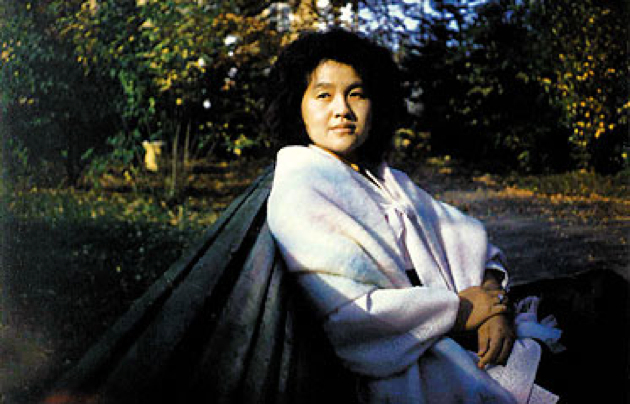
While Kim Shin-Jo’s story sounds like it would make for a good action movie, Sung Hae-Rang’s tale is more of a drama. She was the sister of one of Kim Jong Il’s wives, and spent a lot of time with the man himself. Today she lives in an undisclosed location in Europe, hiding from the intricacies of North Korean politics.
According to her story, her involvement with the royal family started in the dead of night on May 10, 1971. She was awakened by a car pulling up outside her home. She rushed out to meet it and came face to face with Kim Jong Il, who told her to get in. As they left, he filled her in on the details. Against his father’s wishes, he had been secretly living with Sung’s sister, but she had given birth to Kim Jong Il’s child, a boy named Kim Jong Nam—a secret which no one could ever be allowed to know about. From then until her defection, she secretly lived with the family, helping to raise their children and becoming quite close to Kim Jong Il in the process.
In 1982, Sung’s son defected to South Korea—and ten years later, her daughter did the same. With nothing left to hold her back, she herself defected in 1996 during a visit to the family’s villa in Geneva, and went into hiding. She lives a quiet life, but has told of her experiences and given some fascinating insights into the late Kim Jong Il’s personality and temperament.
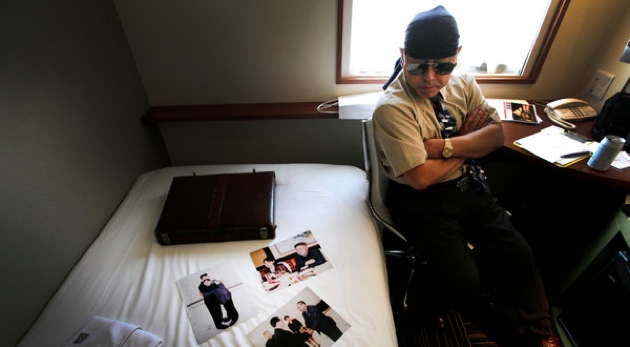
Sung isn’t the only defector to talk about Kim Jong Il’s personal life. Kenji Fujimoto is the pseudonym of a Japanese chef who claimed to have been Kim Jong Il’s personal cook and close acquaintance for almost twenty years, given free rein to travel the world on a sizable salary in order to bring back whatever foreign delicacies the dear leader desired. Suspecting that he was being spied on, and fearing for his life, he defected in 2001. While experts were squabbling over who Kim Jong Il’s successor would be, Kenji asserted that it would be the relatively unknown Kim Jong Un. Obviously, he’s been proven right.
On top of his political insights, Kenji provided tantalizing details of Kim Jong Il’s personal life. He confirmed rumors of a broken collar bone after Kim Jong Il fell off a horse; he mentioned the dear leader’s preference for expensive cognacs; and he spoke of the decadent banquets that would last for days, while the rest of the country starved.
In 2012, Kenji returned to North Korea for a visit at Kim Jong Un’s invitation, and this time he didn’t seem to want to say anything bad about North Korea. He says it’s because the country has changed a lot—but most people seem to think it’s because his wife and child still live there.
While most defectors are understandably keen on leaving North Korea, it’s less common—but not unheard of—for them to go back. In North Korea, returned defectors who denounce the South are often celebrated and paraded down the streets of Pyongyang as evidence of the North’s superiority. But not even that can account for the actions of a twenty-eight-year-old fisherman known only as Lee (it is not him pictured above), who recently stole a fishing boat and escaped to the North . . . for the fourth time.
It’s still unknown why he keeps returning, or how he manages to avoid imprisonment when he goes there. In fact, it’s not even known how he managed to sneak past the heavy security at the border. According to South Korean military officials, he and his stolen fishing boat simply entered a blind spot on the radar and then weren’t spotted again until it was too late. Perhaps when he defects back again, they can ask him how and why he did it.
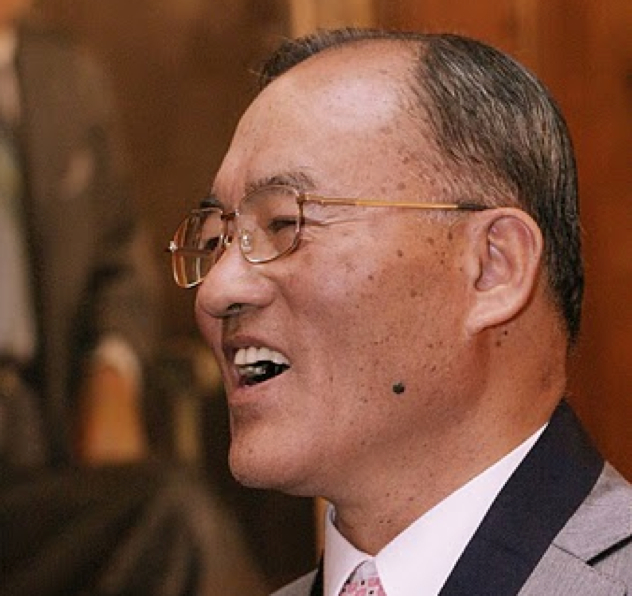
Unfortunately, not everyone has Lee’s ninja-like ability to slip back and forth across the border at will. That’s where Phillip Buck comes in. After fleeing North Korea back in the 1950s, Buck became a pastor and eventually moved to the US in the 1980s, becoming a citizen in 1989. But it wasn’t long before he decided to return, feeling that he was able to do more good over there.
In 1997, during a famine in North Korea, Buck built a small noodle factory to help feed as many as he could. But his most important work is still in use today: an organization—and a series of refugee shelters—dedicated to helping those who’ve fled to settle down and start new lives.
Over the years, his organization has helped hundreds of refugees find peace in the South, despite strong opposition from Chinese authorities who regard the refugees as illegal immigrants. In 2002, Buck had a narrow escape after one of his safe-houses was infiltrated and raided. The refugees staying there were deported, but Buck himself wasn’t present at the time. In 2005, however, they finally caught him in the city of Yanji, along with fourteen North Korean immigrants. For his part in running the organization, he was imprisoned for fifteen months, before being released with the help of the US embassy. As a condition of release, he is no longer allowed to visit China, so he now dedicates himself to helping from afar. His organization is still actively helping North Koreans escape the country.
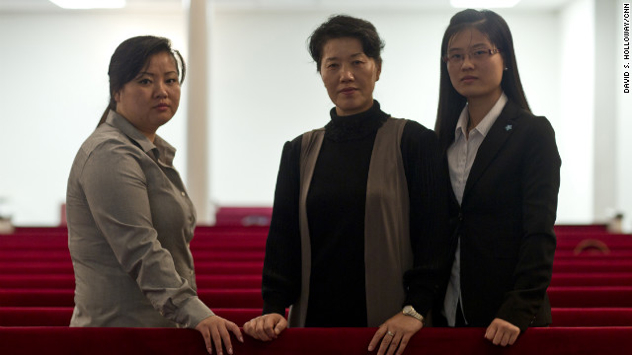
One person helped by Phillip Buck was a woman with the alias of Song Ee Han, who currently lives in Virginia with her two daughters. Her escape began in 1997, during North Korea’s famine. Facing starvation, she and her husband decided to take the risk of crossing into China to find food. Their first trip was a success—as was the second. But only days after returning from their third trip, both she and her husband were arrested.
In custody, while three months pregnant, she was kicked and beaten before being released without explanation. Her husband was less fortunate, and died on a prison train. Song returned home alone, only to find that all the rice they had stashed through the house had been confiscated after their arrest. In the following months, both Song’s mother and her newborn baby boy died, while her eldest daughter left home to find food, but never returned.
On top of everything else, the whole family had been tarnished by the arrests and were now regarded with suspicion by their own neighbors. It came to a head one night in July 1998, when two police officers knocked on Song’s door and told the family to leave—and that if they failed to obey, the officers would burn the house down.
With no other options, Song gathered her remaining children and began the long walk to China—a distance of almost a hundred miles over rough terrain. Her youngest son didn’t live through this difficult journey. Song and her remaining family spent a decade in China, and were caught and deported several times. Eventually—after the entire family was arrested and sent back to North Korea in 2006—Phillip Buck intervened by bribing North Korean guards to let them escape once again, and then securing them refugee status in the US.
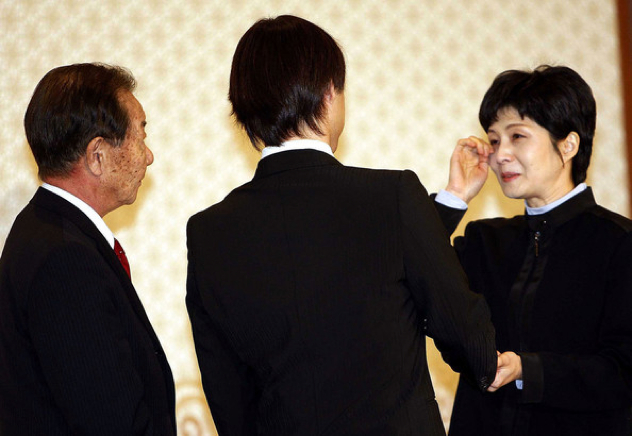
In 1987, as a member of North Korea’s spy agency, Kim Hyon Hui and her partner bombed Korean Air Flight 857, killing all 115 people on board. They were caught in Bahrain, where her accomplice committed suicide with a cyanide pill hidden in a cigarette. She tried to do the same, but was stopped at the last moment. When it became apparent that she was from North Korea, she was flown to Seoul under heavy guard for questioning. She was expecting to be tortured, as her instructors had told her she would, but was instead treated kindly and shown around the city. She soon came to realize that much of what she’d been led to believe about the world outside North Korea was a lie—and she broke down, confessing everything.
In 1989, Kim Hyon Hui was sentenced to death for her role in the terrorist attack. She was then pardoned by South Korea’s president at the time, who viewed her as a brainwashed victim more than a perpetrator—or, depending on how cynical you are, as a free ticket to increase public support. She went on to publish an autobiography and even marry one of the South Korean officers who had investigated her. The proceeds of the book were sent to the families of those who died on the flight. These days, having been named a traitor to North Korea, she lives in an undisclosed location.
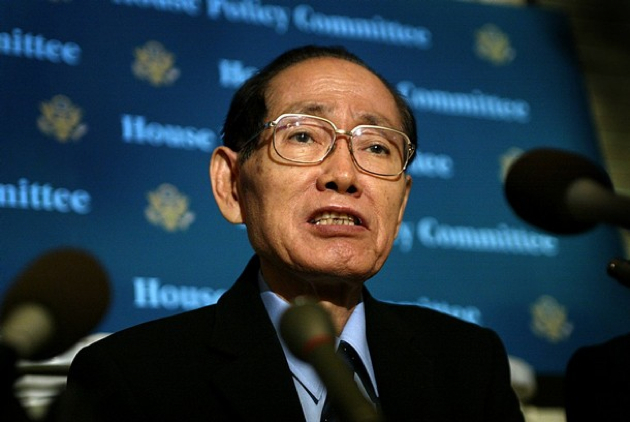
On February 12, 1997, Hwang Jang Yop and his aide walked into the South Korean embassy in Beijing and announced that they were defecting. What makes this particularly amazing is that Hwang Jang Yop was, and probably always will be, the highest-ranking North Korean to ever defect. He was, in fact, one of the key creators of Juche, the ideology behind Kim Jong Il’s entire rule. Three days after he walked into the embassy, another defector named Yi Han Yong (the nephew of Sung Hae Rang from number three in this list) was shot dead outside his home in South Korea in an attack widely thought to be retaliation for Hwang’s defection.
Both Hwang and his aide had much to say about how things were in North Korea, but most startling was the announcement that North Korea would stop at nothing to reclaim the South, and that war was inevitable—a prediction which so far hasn’t panned out. Other than that, Hwang didn’t miss any opportunity to point out that Kim Jong Il was nuts, and that the cult of personality around North Korea’s ruling family wouldn’t end well.

Gone are the days when North Korean refugees were greeted as heroes in South Korea. There are over 20,000 North Korean refugees currently living there, and tensions are starting to become apparent. Defectors are often stereotyped as bland, sexless, unfashionable, and uneducated thieves.
In an effort to combat such attitudes, a TV show called “Now on my way to Meet You” was launched in South Korea, featuring a cast composed entirely of North Koreans. It’s a hybrid talent show featuring singing, dancing, skits, gossip, and fashion talk—but it also has a serious side, with cast members regularly discussing things like their escapes and the families they left behind on the other side of the border.
The show’s creators said it was an effort to combat some of the negative stereotypes about North Korean refugees—but is it working? Kind of. It doesn’t seem to have changed the stereotype of thievery, or the fact that most North Korean refugees end up working poorly paid menial jobs—but it does, at least, make them seem stylish. And really, any news about North Korea these days—so long as it doesn’t involve ludicrously cartoonish threats—is probably good news.








